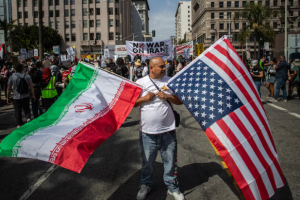 After Trump Attacks Iran, What Experts and Officials Fear for the American Homeland
After Trump Attacks Iran, What Experts and Officials Fear for the American Homeland
In the wake of former President Donald Trump’s authorized strikes on Iran’s underground nuclear facilities, national security experts and government officials are sounding the alarm about potential consequences not only overseas but also here at home. As tensions in the Middle East escalate, fears are growing that the American homeland could face a wave of retaliation, both directly and indirectly.
The most immediate concern among officials is the potential for Iran or its allies to launch cyberattacks against critical U.S. infrastructure. Iran has a well-developed cyber warfare unit within its Islamic Revolutionary Guard Corps (IRGC), and in the past, it has demonstrated the ability to target American banks, energy companies, and even municipal systems. Experts warn that in response to the attacks on its nuclear program, Iran could ramp up operations to disrupt power grids, airports, financial systems, and hospital networks.
“The cyber threat is very real,” said a former senior intelligence official. “Iran can’t match the U.S. military head-to-head, but they can absolutely create chaos with cyber tools — and they’ve done it before.”
Beyond cyber threats, law enforcement and homeland security officials are also concerned about potential terror plots orchestrated by Iranian-backed groups such as Hezbollah, which has operatives and sympathizers worldwide, including in Latin America and parts of the U.S. While no credible threats have been confirmed as of now, intelligence agencies have increased surveillance and security measures at airports, ports, and large public events. Federal agencies have reportedly advised state and local governments to remain vigilant.
There is also concern about lone-wolf actors inspired by Iran’s rhetoric or fueled by anger over the strikes. The Department of Homeland Security (DHS) has already raised the national threat level slightly, citing the risk of individuals committing acts of violence in response to the international escalation. Religious centers, especially those of Jewish or Middle Eastern communities, are being urged to increase protective measures.
Economically, experts warn that Iran could target shipping routes, especially the Strait of Hormuz — through which a significant portion of the world’s oil flows. Any disruption there could send fuel prices skyrocketing in the U.S., triggering inflation and panic at the pump.
The Biden administration, while distancing itself from Trump’s actions, is reportedly working behind the scenes to de-escalate the situation and open channels of communication with European and Middle Eastern allies. Some diplomats worry that the strike has set off a chain reaction that could take years to stabilize.
Ultimately, while the bombing may have temporarily crippled Iran’s nuclear program, it has also opened the door to a range of unpredictable retaliations. As one defense analyst put it, “The battlefield may be in the Middle East, but the blowback could hit us right here at home — in our cities, our wallets, and our daily lives.”

